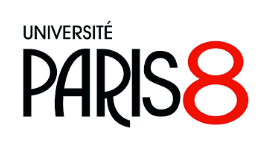12h00
en ligne
Focus marking by Spanish monolingual and heritage speakers
(joint work with Ingo Feldhausen, Université de Lorraine & ATILF-CNRS)
In this paper, we shed new light on the question of how narrow information and contrastive focus is prosodically and syntactically realized by monolingual (MS) and heritage (HS) speakers of Castilian Spanish (CS). Research on the syntax-prosody interface in the expression of focus by HS is relatively new (see van Rijswijk et al. 2017ab, Kim 2018, Leal et al. 2018). We, thus, add to this body of research by presenting the insights of a production test conducted with 12 Spanish MS and HS (with German as their dominant language). The theoretically oriented literature suggests that information focus must be realized rightmost, whereas stress shift (and other strategies such as clefting or fronting) are possible only for contrastive focus (Zubizarreta 1998). By contrast, experimentally oriented studies suggest that stress shift can be used for both focus types (Muntendam 2009, Gabriel 2010, Leal et al. 2018, among others). However, this apparent discrepancy can often be reduced to diatopic differences (as proposed in Feldhausen & Vanrell 2015). German-Spanish bilinguals are an interesting test case since whereas stress shift is an undisputed strategy to mark focus in German (Uhmann 1991, Féry 1993), it has often been described as dispreferred by Castilian Spanish speakers (Zubizarreta 1998, Vanrell & Fernández-Soriano 2018). Based on data from a production test designed to elicit different focus readings (narrow informational and contrastive focus on the subject and (in)direct objects), the study reveals that whereas HS realize both types of focus almost always by stress shift (L+H*), MS, in turn, distinguish information from contrastive focus through different strategies (e.g., clefting, p-movement, fronting). In the talk we will discuss whether this and other differences between MS and HS can be attributed to the influence of German or whether they rather correspond to default strategies of HS.



